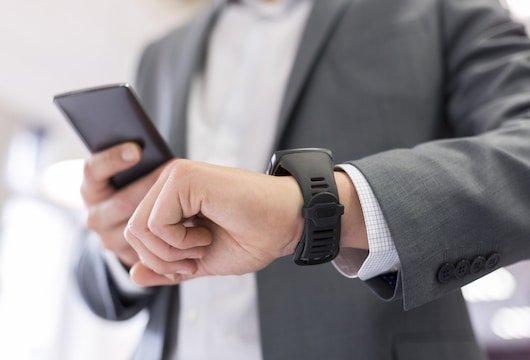
The wearables market seems to be extremely buoyant and expanding in interesting ways. Not long ago the concept of wearing the next generation of computers seemed far-fetched. But then conventional computers are best described as typewriters with a screen on top.
It now seems as if wearables will become ubiquitous, and soon.
According to Juniper Research five million people’s health will be monitored via their wearables by 2023, generating a market in itself of $60 billion a year. Selling the medical data (for instance to insurance companies) will produce a market opportunity of $855 million a year. That depends, of course, on how the privacy issues are handled, bearing in mind the paranoia around the whole subject.
It always pays to watch what Amazon does as an indication of how seriously we should take something. And the tech giant just got approval under the concisely named US Health Insurance Portability and Accountability Act to transmit health data via Alexa. The company has been working with six healthcare companies to develop voice based programmes that cover a wide range of healthcare issues. These range from remote monitoring to tracking an urgent prescription to managing post-operative care for children.
Amazon is now officially in the healthcare business. So is Apple with its own wearable solutions. It is a market, says Tim Cook, Apple’s CEO, that makes the smartphone market look small.
Wearables are also heading for the payments world. Hong Kong based Tappy has been working with Timex and customers can now convert a standard watch into a payments device with a battery-less chip. Other initiatives are also under way, Mastercard is working with a Swedish company, while smart device company Garmin is working with several companies to turn their health monitoring watches into payments devices. Other, sometimes weird, devices are popping up including a monitor that fits onto your teeth (or tooth) to monitor your diet. Mind you, you can now find your perfect partner by examining the contents of their fridge (via an app, obviously)!
It is early days and there have been some false starts but it definitely looks as if the wearables market is heading for the fast lane.
Whether adding a chip to a standard watch means that the watch becomes a wearable device is obviously up for debate but it is safe to say that the next generation of computer is here.
It is also reasonably safe to say that the wearables market will be similar to the PC market in that they will become so ubiquitous that they will ‘disappear’ as a stand alone market and simply become how the healthcare, payments and [insert name of a market] will develop.

Be the first to comment